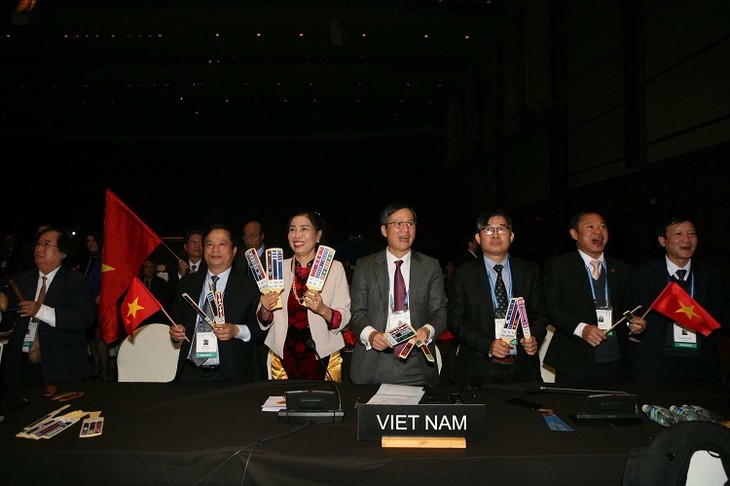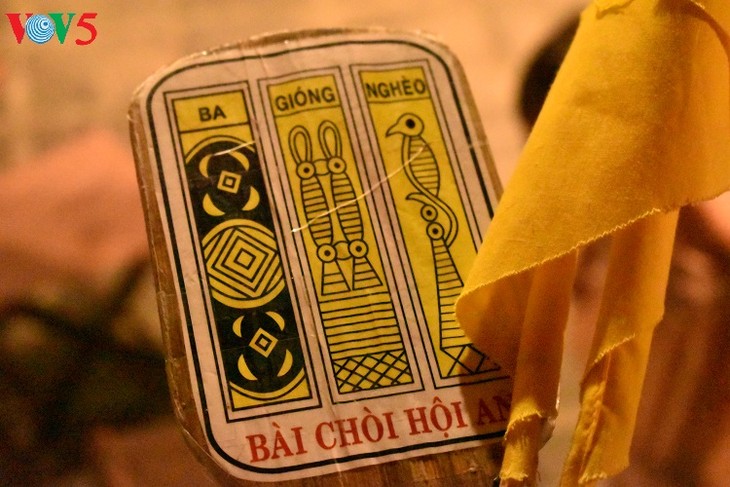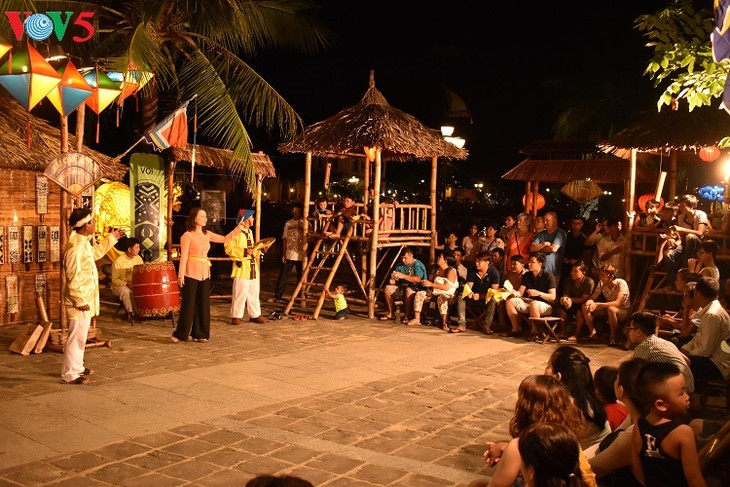(VOVWORLD) - Bài chòi, a folk music genre practiced in central Vietnam, has been officially recognized as an Intangible Cultural Heritage of Humanity by UNESCO. This recognition is of great importance to Vietnam, reflecting the country’s rich and diverse culture and its commitment to protecting traditional values.
 The recognition was made at the 12th session of the UNESCO Inter-governmental Committee for the Safeguarding of the Intangible Cultural Heritage in Jeju, the Republic of Korea, on December 7, 2017. The recognition was made at the 12th session of the UNESCO Inter-governmental Committee for the Safeguarding of the Intangible Cultural Heritage in Jeju, the Republic of Korea, on December 7, 2017. |
After days of torrential rain and floods, local people and tourists returned to a common yard in the UNESCO-recognized ancient town of Hoi An to enjoy Bai choi singing. Drums were played and pink pennants awarded to top performers were placed aside.
"Visitors can take part in a game which lasts for 7 minutes. Participants will listen to artists singing folk songs of Quang Nam region and anyone holding cards that contain all 3 words mentioned in the songs will win the game.", said tour guide Vo Thi Phuong Hoai while introducing Bai choi singing and its regulations to visitors.
The structure of a traditional Bai choi singing festival contest consists of nine to ten bamboo huts with four huts standing parallel and one or two in the middle where the game’s umpire sits. The game starts when the umpire who wears a traditional costume gives the players three bamboo or wooden cards printed with pictures and words. When the umpire sings a sentence of a folk song that has the same words as the card of a player, he or she hits the wooden bell to signal that his or her card matches the umpire’s words and becomes the winner.
 A playing card in Bai choi singing A playing card in Bai choi singing
|
The Bai choi songs are about festivals, daily life and work, and are accompanied by musical instruments. Bai choi is an important cultural activity in Vietnamese villages and communes.
"I usually sing Bai choi during spring festivals and my singing often goes like this: On the first days of the lunar year, bowing in front of ancestral altars, we’d like to pray for peace and harmony to our families, health to our parents and loved ones and joy to all fellow countrymen. We also wish for our businesses to grow 10 times bigger than the previous ones.", said Le Dieu Khoa, a Bai choi singer in Hoi An.
Bai choi singing is a diverse art combining music, poetry, acting, painting and literature. Performers and their families play a major role in safeguarding the practice, which has been passed down to younger generations. UNESCO’s recognition of Bai choi has called for greater efforts in protecting the heritage. Phung Tan Dong, a researcher of Bai choi singing in Hoi An told VOV: "Bai choi is the pride of people in central Vietnam and nationwide as well. To better preserve the art form, it’s neccesary to set out policies at national level, not just at local level. We need proper fundings for training for young artists and promoting the art form to a a wider public."
 A Bai choi singing performance in Hoi An ancient town A Bai choi singing performance in Hoi An ancient town
|
A total of 90 art troupes and clubs specializing in Bai choi singing have been established across Vietnam. Hoi An is taking the lead in bringing Bai Choi to schools.
"We’ve organized extra classes to teach Bai choi singing for students over the past 15 years, which produced some popular Bai choi singers. Thanks to this effort, many young people in Hoi An can sing Bai choi songs and understand the game as well", said Tran Dinh Chau, Deputy Director of the Hoi An Municipal Center for Arts and Sports.